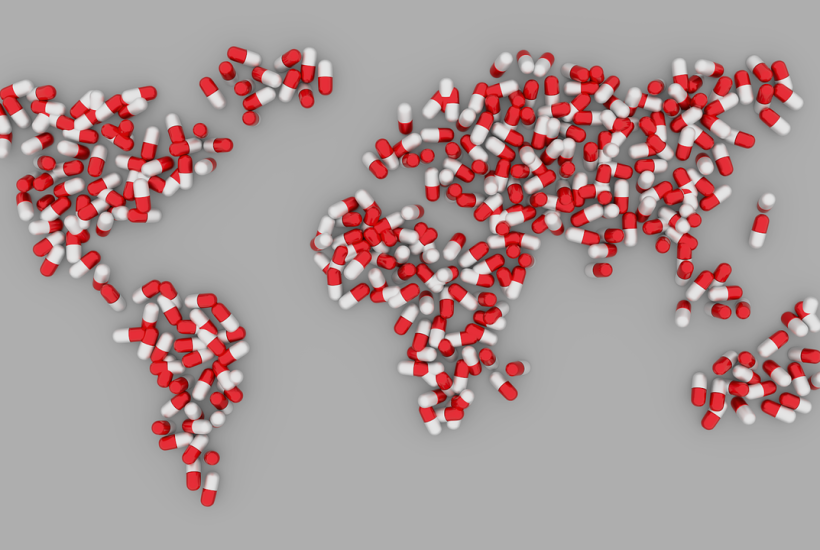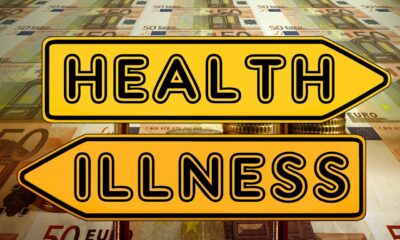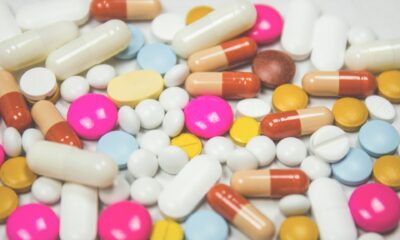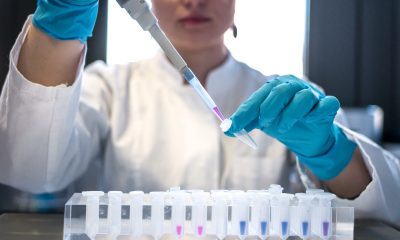Biotech
Pharmaceuticals, the Backbone of 17% of the World’s Economies
Beyond the 27 EU countries, the pharmaceutical industry maintains its relevance in Switzerland and ranks as the country’s second most exported non-agricultural product, followed by blood products, both of which account for 30% of the country’s export value. The European country owes 5.4% of its GDP to industry and, together with the US, they are the largest business hubs in the world.

The pharmaceutical industry sets ground. Some 16.9% of the world’s countries have pharmaceuticals among their five most exported non-agricultural materials by value transacted in 2021, according to data from the World Trade Organization’s (WTO) Trade Profiles 2022 report.
Specifically, 35 of the 195 countries around the globe have a mainstay of their economy in the sale of medicines for therapeutic or prophylactic purposes, presented in doses for retail sale. Among them, nine countries also combine the sale of pharmaceuticals with the sale of blood products.
Ireland is the country with the greatest exposure to the pharmaceutical industry in its exports; specifically, 25% of its foreign sales are of plasma derivatives, while 12% of its exports are of drugs for retail sale.
The country’s pharmaceutical sector is made up of national companies and up to 120 foreign companies. In total, the sector employs 24,500 people directly, according to data from the Irish Pharmaceutical Healthcare Association. Giants such as Pfizer, Lilly, AbbVie and Novartis have production plants in the country.
Read more about the pharmaceutical companies with our companion app. Born2Invest is a digital media website covering the biotech industry, among others. Our companion app allows you to get your daily dose of financial news from industries like banking, cannabis, and innovation in biotechnology.
Ireland is the country with the greatest exposure to the pharmaceutical industry in its exports
Spanish company Grifols is also present in Ireland. The listed company, which specializes in plasma derivatives, announced last October the start-up of a new plant in Dublin to produce albumin. All in all, the country is the EU member that is most dependent on the European Union’s pharmaceutical industry. For the 27 economies as a whole, pharmaceuticals are the second most exported product, behind only car engines.
Beyond the 27, the pharmaceutical industry maintains its relevance in Switzerland and ranks as the country’s second most exported non-agricultural product, followed by blood products, both of which account for 30% of the country’s export value. The European country owes 5.4% of its Gross Domestic Product (GDP) to industry and, together with the United States, they are the largest business hubs in the world.
Medicines are also among Belgium’s most exported products, accounting for 13% of its exports, while plasma derivatives account for another 7%. The country has production plants of countries such as AstraZeneca, AbbVie, GSK, Novartis, Pfizer, Merck, Roche, and Sanofi, among others.
Another European country with a high dependence on the industry is Denmark, where more than 15% of its exports are pharmaceuticals, the first product sold abroad by the Danish economy. In addition, 3% of the country’s exports are blood products for medical purposes.
For Spain, pharmaceuticals are the country’s third most exported product, while blood products are in fifth position. Although below other neighboring countries such as Greece, where drugs account for 10% of exports, France, with 5.7%, and Italy, with 5%.
Beyond Europe, the pharmaceutical industry is among the mainstays of smaller economies such as Barbados, Cyprus, Costa Rica, Guyana, Malta, Sao Tome, and Principe.
__
(Featured image by jniittymaa0 via Pixabay)
DISCLAIMER: This article was written by a third party contributor and does not reflect the opinion of Born2Invest, its management, staff or its associates. Please review our disclaimer for more information.
This article may include forward-looking statements. These forward-looking statements generally are identified by the words “believe,” “project,” “estimate,” “become,” “plan,” “will,” and similar expressions. These forward-looking statements involve known and unknown risks as well as uncertainties, including those discussed in the following cautionary statements and elsewhere in this article and on this site. Although the Company may believe that its expectations are based on reasonable assumptions, the actual results that the Company may achieve may differ materially from any forward-looking statements, which reflect the opinions of the management of the Company only as of the date hereof. Additionally, please make sure to read these important disclosures.
First published in PlantaDoce, a third-party contributor translated and adapted the article from the original. In case of discrepancy, the original will prevail.
Although we made reasonable efforts to provide accurate translations, some parts may be incorrect. Born2Invest assumes no responsibility for errors, omissions or ambiguities in the translations provided on this website. Any person or entity relying on translated content does so at their own risk. Born2Invest is not responsible for losses caused by such reliance on the accuracy or reliability of translated information. If you wish to report an error or inaccuracy in the translation, we encourage you to contact us.

-

 Business2 weeks ago
Business2 weeks agoTopRanked.io Weekly Affiliate Digest: What’s Hot in Affiliate Marketing [Best Technology Affiliate Programs]
-

 Business1 week ago
Business1 week ago2.5 Billion People Watch Quiz Shows Every Day. Masters of Trivia (MOT) Is Letting Them Compete
-

 Crypto2 weeks ago
Crypto2 weeks agoBitcoin Steady Near $68K as ETF Outflows and Institutional Moves Shape Crypto Markets
-

 Crypto3 days ago
Crypto3 days agoMiddle East Tensions Shake Crypto as Bitcoin and Ethereum Slip

























